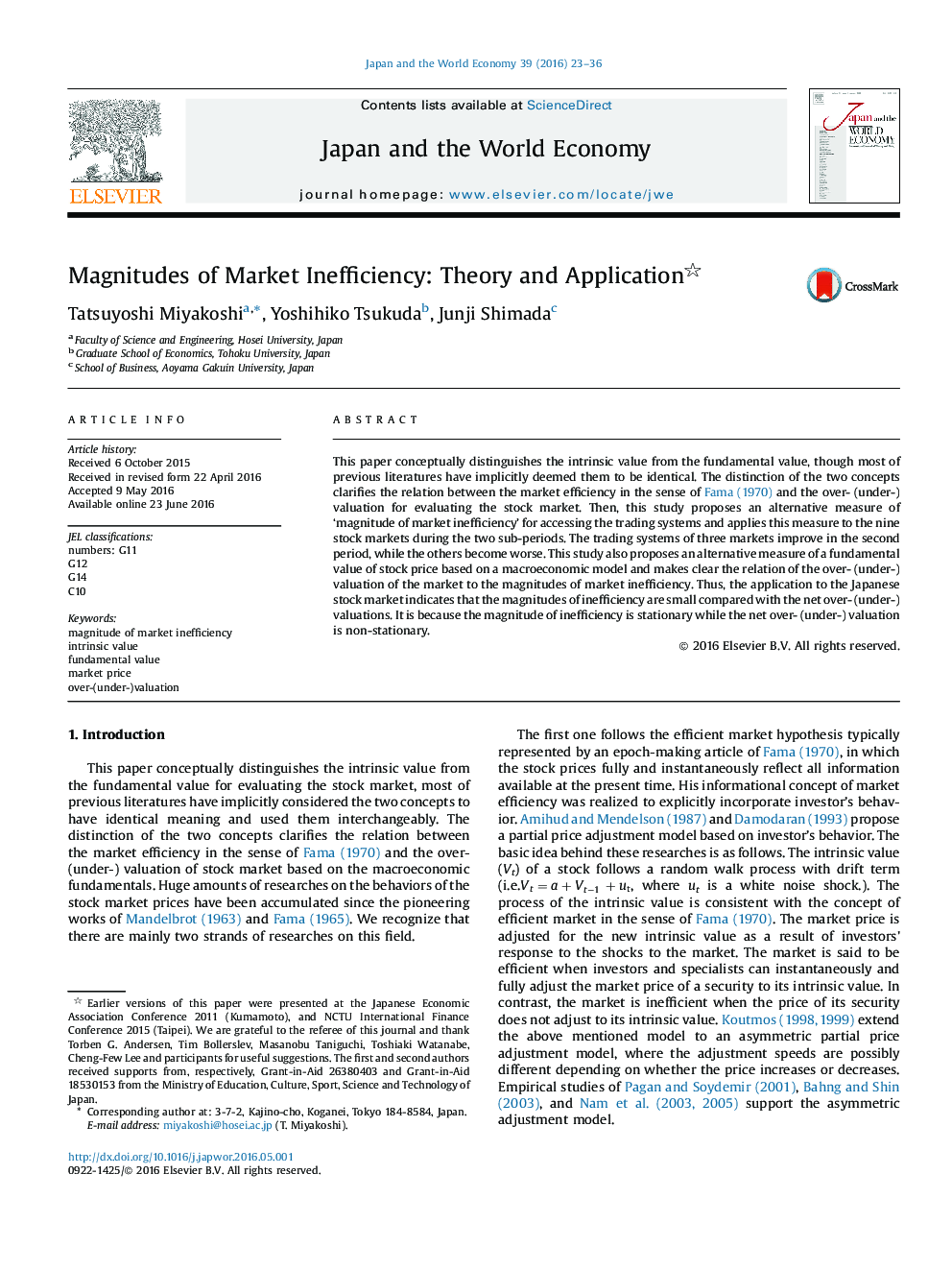| Article ID | Journal | Published Year | Pages | File Type |
|---|---|---|---|---|
| 5086105 | Japan and the World Economy | 2016 | 14 Pages |
â¢Magnitude of inefficiency has advantages over adjusting speed to access stock market.â¢Over-valuation of market is another measure based on a macroeconomic model.â¢Over-valuation is larger than magnitude of inefficiency in Japanese stock market.â¢Magnitude of inefficiency is stationary but over-valuation is nonstationary.
This paper conceptually distinguishes the intrinsic value from the fundamental value, though most of previous literatures have implicitly deemed them to be identical. The distinction of the two concepts clarifies the relation between the market efficiency in the sense of Fama (1970) and the over- (under-) valuation for evaluating the stock market. Then, this study proposes an alternative measure of 'magnitude of market inefficiency' for accessing the trading systems and applies this measure to the nine stock markets during the two sub-periods. The trading systems of three markets improve in the second period, while the others become worse. This study also proposes an alternative measure of a fundamental value of stock price based on a macroeconomic model and makes clear the relation of the over- (under-) valuation of the market to the magnitudes of market inefficiency. Thus, the application to the Japanese stock market indicates that the magnitudes of inefficiency are small compared with the net over- (under-) valuations. It is because the magnitude of inefficiency is stationary while the net over- (under-) valuation is non-stationary.
